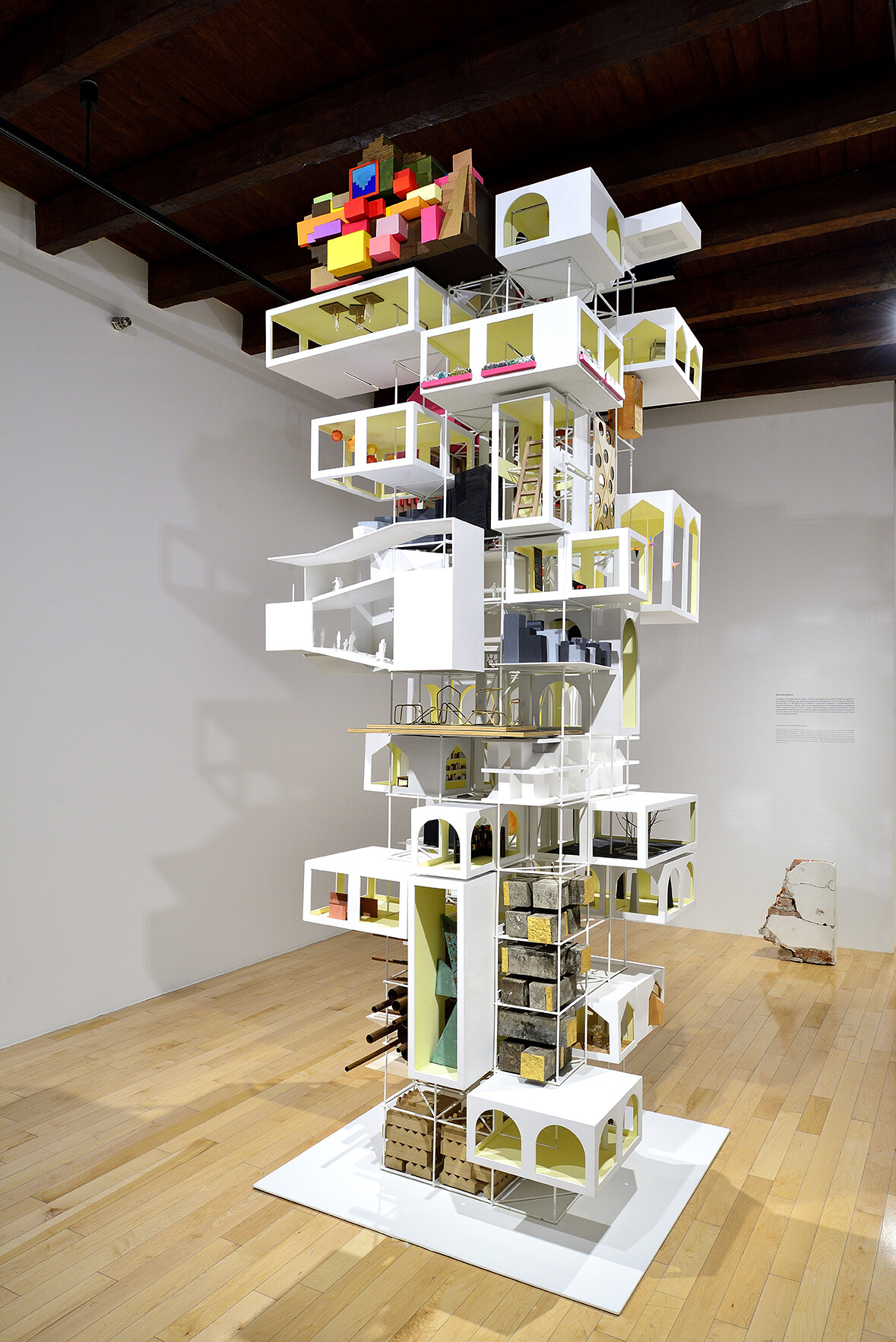May 12–August 20, 2018
2 Sur 708
Centro Histórico
72000 Puebla Pue.
México
Hours: Wednesday–Monday 10am–6pm,
Saturday 10am–9pm
T +52 222 229 3850
difusion@museoamparo.com
Museo Amparo presents Perspectives. Tatiana Bilbao Estudio, an exhibition that reviews the most representative projects throughout the career of the Mexican architect Tatiana Bilbao.
Tatiana Bilbao was born in Mexico City in 1972 and studied Architecture at the Universidad Iberoamericana. Her career began as an advisor in the Secretaría de Desarrollo Urbano y Vivienda del Gobierno del Distrito Federal (Ministery of Urban Development and Housing of the Government of the Federal District). In 2004 she founded the Studio that bears her name.
Tatiana Bilbao Studio aims to understand architecture from the multicultural and the multidisciplinary to create humanized spaces that react to global capitalism, opening niches of opportunity for cultural and economic development. Some projects generated under these objectives are the Jardín Botánico de Culiacán, the Capilla de la Gratitud in la Ruta del Peregrino in the state of Jalisco, the Biotechnological Building for the TEC Sinaloa, a prototype for a sustainable house of only 160,000 MXN and the Tangassi Funeral Home in San Luis Potosí, among others.
Since the foundation of her Studio, Tatiana Bilbao has formed, conceptualized, and built a large number of projects where the social and spatial experiences are generated in different ways, activating certain cultural referents. Thus, a critical philosophy and the forms imposed by a productive field have enriched her vision, gaining a place in contemporary debates and responding at the same time to social needs and ethic implications of this time of crisis.
Perspectives. Tatiana Bilbao Estudio, curated by Gonzalo Ortega in collaboration with Tatiana Bilbao, suggests a singular design display positioned from the resistance to conventional exhibition models. With the support of several members of her team, she developed a presentation that combines different phases of her creative process, showing her way of thinking and producing architecture. All the materials compiled and presented in the Museum galleries evidence a position and a work methodology that made her become one of the most important architects at an international level.
The exhibition focuses on the connection between her work to art, philosophy, design, and sociology, and reviews her most representative projects since 2004 at national and international levels. When touring the galleries, the viewer will penetrate into four lines of thought: Space, Inhabiting, Context, and Collage. Each line is deployed in a kind of “intuitive territory” that opens a privileged window to Bilbao’s proposals: transgressing conventionalisms to rethink architecture beyond strictly functional, sustainable or poetic spaces.
Social awareness and the ability to experiment with urban spaces and materials of construction are explicit in the projects presented in this exhibition, in which her work and her concepts are examined. If a structure implies a series of defined relationships, Bilbao’s architecture keeps and favors this type of connections and enriches them through a multidisciplinary field that combines multiple perspectives. Her sensitivity to nature and the various cultural manifestations with which it comes in contact, as well as her capacity to integrate new ideas and technologies in her processes, generate urban and landscape programs in which architecture is capable of transcending a defined field. Bilbao’s vision manages to expand the questions about the present and the future of architecture towards a discipline that can be assumed even as a philosophical or political proposal. Perspectives. Tatiana Bilbao Estudio is an outline of that way of thinking.
This exhibition will remain open to the public in the Temporary Exhibition Galleries until Monday, August 20, 2018.
Museo Amparo
Museo Amparo is a private institution founded in memory of Amparo Rugarcía de Espinosa Yglesias in 1991 by Manuel Espinosa Yglesias and his daughter Ángeles Espinosa Yglesias Rugarcía through Fundación Amparo with the commitment to preserve, research, display, and disclose Pre-Columbian, colonial, modern, and contemporary Mexican art. Currently, Museo Amparo displays its Pre-Columbian art collection, considered one of the most important in Mexico in a private institution. In addition to the collection of works of colonial, 19th and 20th century art, it has an ongoing program of Mexican and international temporary exhibitions as well as an intensive program of academic, artistic, educational, and ludic activities for all age groups.

